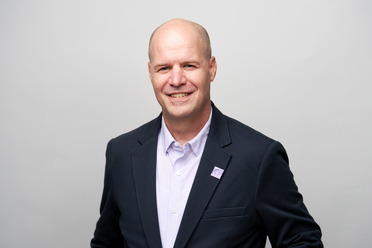
Daniel David
PhD RN
Assistant Professor
daniel.david@nyu.edu
1 212 992 5930
433 First Ave
New York, NY 10010
United States
Daniel David's additional information
-
-
Daniel David is a geriatrics and palliative care (PC) nurse researcher and an Assistant Professor at the Rory Meyers College of Nursing at New York University. As an implementation scientist, he seeks to translate nursing research into feasible, effective, and scalable interventions for under-resourced, community-dwelling older adults and their care partners who are on the cusp of needing nursing home care.
His research program addresses the unmet social, emotional, and serious illness needs of low-income residents living in Medicaid-supported assisted living (AL) facilities in New York City. Notably, he developed the “Someone to Talk To” program in partnership with a community advisory board of AL residents. This initiative pairs residents with community health workers to foster serious illness conversations, explore values and care goals, and bridge care gaps for isolated individuals at high risk of nursing home placement. This work has been recognized nationally through the Center to Advance Palliative Care (CAPC) Tipping Point Challenge (Silver Medal) and internationally by the Gerontological Society of America (GSA) Distinguished Nursing Research Manuscript Award.
Prof. David serves on the editorial board of the Journal of the American Geriatrics Society (JAGS), the advisory council of the American Assisted Living Nurses Association (AALNA), and the research core of the Center of Excellence for Assisted Living (CEAL-UNC). He has received career development awards from the Cambia Foundation and the National Palliative Care Research Center (NPCRC).
Beyond his primary research focus in assisted living, David has served as a Co-Investigator on NIH-funded projects, including a study on the experiences of New York City hospice team members during the COVID-19 pandemic (5R01NR019792). He is currently a Site Principal Investigator at NYU Langone Medical Center for a 40-site trial examining a nurse-led intervention aimed at reducing avoidable hospitalizations among patients living with dementia and their care partners (U19AG078105). Collectively, his research promotes person-centered and community-based approaches to improving care for older adults with serious illnesses.
-
-
PhD, Northeastern UniversityBSN, University of VirginiaMS, University of Colorado
-
-
GerontologyPalliative care
-
-
American Geriatrics SocietyGerontological Society of AmericaHospice and Palliative Nurses AssociationPalliative Care Research CooperativeSigma Theta Tau
-
-
Faculty Honors Awards
Junior Investigator, Palliative Care Research Consortium (2018)VA Quality Scholar, VA Medical Center, San Francisco (2018)Scholarship, End of Life Nursing Education Consortium (2017)Sigma Theta Tau, Scholar Research Award, Northeastern University (2016)Kaneb Foundation Research Award, Regis College (2015)Scholar, Jonas Center for Nursing Excellence (2014)Scholar, Summer Genetics Institute, NINR, National Institute of Health (2014)Sigma Theta Tau, Rising Star Award, Northeastern University (2013)Sigma Theta Tau, Beta Kappa (2004), Gamma Epsilon Chapter (2013)Raven Society, University of Virginia (2005)Distinguished Nursing Student Award, University of Virginia (2005) -
-
Publications
Beyond Tasks: Care Workers’ Perspectives on When Things Go Well in a Retirement Community Setting
AbstractDavid, D., Kilaberia, T., & David, D. (2025). (p. igaf122-).Abstract~Chapter 19: Evaluation of Evidence-Based Practice. In K. Zavotsky & M. Vetter (Eds), Advancing Evidence-Based Practice in Nursing and Healthcare (pp. 293-308). Elsevier.
AbstractDavid, D., & Maydick-Youngberg, D. (2025). In Advancing Evidence-Based Practice in Nursing and Healthcare. Elsevier.Abstract~Engaging patients, family caregivers and healthcare providers to develop metrics tailored to a palliative care population: a content validity process
AbstractDavid, D., Shorting, T., McCoy, M., Weiss, M., Schue, J., Ernecoff, N. C., Bush, S. H., Lalumi`ere, G., Rice, J., Hagarty, M., Vincent, D., & others. (2025). In Journal of Patient-Reported Outcomes (Vols. 9, Issue 1, p. 47).Abstract~From Data to Dialogue: Harnessing Technology to Advance Palliative Care
AbstractDavid, D., Lindvall, C., & Parikh, R. (2025).Abstract~Innovative Strategies for Recruitment in Assisted Living: Lessons From Qualitative and Pilot Intervention Studies
AbstractDavid, D., & David, D. (2025). (p. igaf122-).Abstract~Keys to teamwork success in long-term care based on lived work experience: communication, coordination, and relational factors
AbstractDavid, D., Kilaberia, T. R., Xu, Q., & David, D. (2025). In Cogent Gerontology (Vols. 4, Issue 1, p. 2572796).Abstract~Leadership During a Crisis: Perspectives of Hospice and Palliative Care Team Members
AbstractDavid, D., Moreines, L. T., David, D., Boafo, J., Franzosa, E., Kim, P., McDonald, M., Brody, A., Aldridge, M., & Schulman-Green, D. (2025). In Journal of Pain and Symptom Management (Vols. 69, Issues 5, p. e653--e654).Abstract~Opportunities to improve mentorship of underrepresented minority nurse faculty on the tenure track: A Delphi study
AbstractDavid, D., Osakwe, Z. T., David, D., Avorgbedor, F., Stefancic, A., Palakiko, D.-M., Joseph, P. V., Calixte, R., House, S., & Carthon, J. (2025). In Nursing outlook (Vols. 73, Issues 4, p. 102437).Abstract~Primary Palliative Care in Assisted Living and Residential Care: A Metasynthesis
AbstractDavid, D., David, D., Jimenez, V., & Brody, A. A. (2025). In Journal of Hospice & Palliative Nursing (p. 10-1097).Abstract~"What Good is That?" A Critical Look at Serious Illness and Telehealth
AbstractDavid, D. (2025).Abstractinvited TED talk -
-
Media